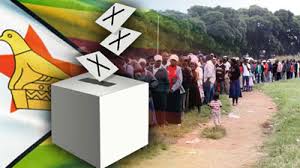Charles Mabhena
The opposition party Renewal Democrats of Zimbabwe is calling for an election supervised and monitored by the Southern African Development Community, African Union, European Union and the United Nations.
According to a statement issued by the party, the intention by the ZANU-PF led government to acquire the Biometric Voting System for the 2018 General Elections is an indication that the Mugabe regime want to rig the elections.
“The voting population has lost confidence and trust in ZEC after years of crooked polls. Therefore, we join other Zimbabweans in calling for an election that is run, supervised and monitored by regional and the international community.
“It is beyond any reasonable doubt that ZEC cannot be separated from the ruling party. Continuous tendencies of changing the rules by ZEC before an election are clear testimony that they want to twist the game in favour of their paymasters. The only way out is the simple and manageable ‘Munhu nechitupa chake formula’ (every person with his ID formular) considering the time left before the next year elections,” charged PDZ in a statement availed to ZimNews today.
“RDZ reiterates its strong opposition to the introduction of the questionable, porus, intrusive and manipulable Biometric Voting System in the 2018 General Elections. RDZ has been on record that the credibility of elections in Zimbabwe has never been technological but man made. Multiple voting, violence, intimation and exclusion are some of the reasons why the elections in Zimbabwe have been discredited.
“These are critical issues that must be addressed and the introduction of Biometric Voting can never address the element of violence, intimidation, exclusion and force marching voters to polling stations. The Constitution of Zimbabwe is never ambiguous on the right to vote by all citizens. Procuring electronic gadgets of unknown origins and tendencies to screen people for voting is tantamount to taking away their constitutional rights,” adds the statement.
RDZ adds that to this end it proposes very affordable solutions on enforcing the people’s right to vote, and that it demands that citizens with valid passports and identity cards be allowed to vote on the voting day at polling stations of their choice and for their candidates.
Zimbabwe used the same system in 1980 and at the 2000 referendum and worked perfectly.
“The current impasse on who should procure what is not necessary. All we need to do is to agree on the ink to be used to eradicate multiplicity in voting,” read the statement.
There has been a wide condemnation by opposition, political pressure groups and civic organisations over the intended acquiring of the BVR. Political parties like Transform Zimbabwe has already started gathering signatures to be forwarded to SADC over the Zimbabwe government move.













